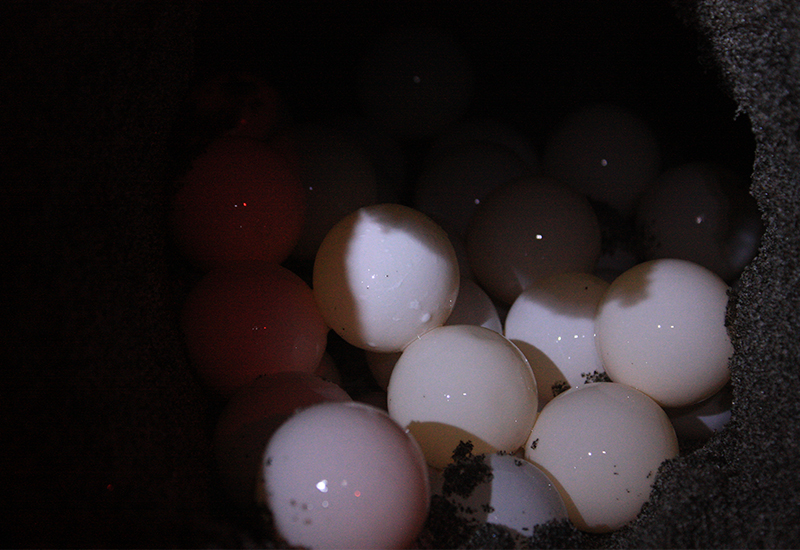
On February 13, 2009, the Ministry of Environment and Natural Resources (MARN) of El Salvador, in agreement with the Ministry of Agriculture and Livestock (MAG), issued an Executive Agreement, prohibiting the "consumption of sea turtle eggs and the use of products derived from these species. " This agreement is articulated with the Wildlife Conservation Law, which states: "In all cases in which wild populations require special protection for the recovery or stability of their populations, the Ministry of Environment and Natural Resources, through its leadership, can provide partial or total time use ban."
During 2009-2013, with the assistance of USAID funds, FUNZEL executed a Marine Turtle Conservation Project in support of MARN. In the main egg-laying beaches, the creation and training of seven local Associations for the Conservation of Sea Turtles (ACOTOM) was facilitated, which are legally recognized by the Ministry of the Interior and are mainly made up of former turtles-egg poachers who are currently helping in the conservation process of the four species that nest on the coasts of El Salvador from their territories.
In this way, FUNZEL converts former poachers, those who previously sold sea turtle eggs to the black market, in charge of protecting the nests of these species in incubation pens. They are responsible for supporting the construction of pens where turtle eggs are placed and protected during the 45 days its for baby turtles to hatch.
In all the places where incubation pens are available, turtle hatchers are trained in the management of turtle eggs and hatcheries. This has allowed an 87% hatching rate, which translates into a greater number of newborn hatchlings (baby borne turtles) that will reach the sea, since according to studies when eggs are incubated in situ - where eggs were laid without human intervention - an average of 50 to 60% of births are achieved.
Since 2014, allies, honorary partners, academia, local organizations and municipalities have been incorporated to this great effort. These alliances allow the management of turtle egg incubation pens, beach clean ups and environmental awareness efforts, accounting for 5,095,996 baby turtles released from 2009 to 2018, mostly from the Olive Ridley (Lepidochelys olivacea).
En el mundo existen siete especies de tortugas marinas, las siete se encuentran AMENAZADAS o en PELIGRO DE EXTINCIÓN. Ahí, la importancia de proteger las cuatro especies que llegan a nuestras playas, de ellas depende la salud de los océanos. Algunas de sus funciones ecosistémicas son controlar la población de medusas y del pasto marino, aparte de eso se encargan de dispersar nutrientes tanto en el mar como en la arena de las playas al momento que desovar.